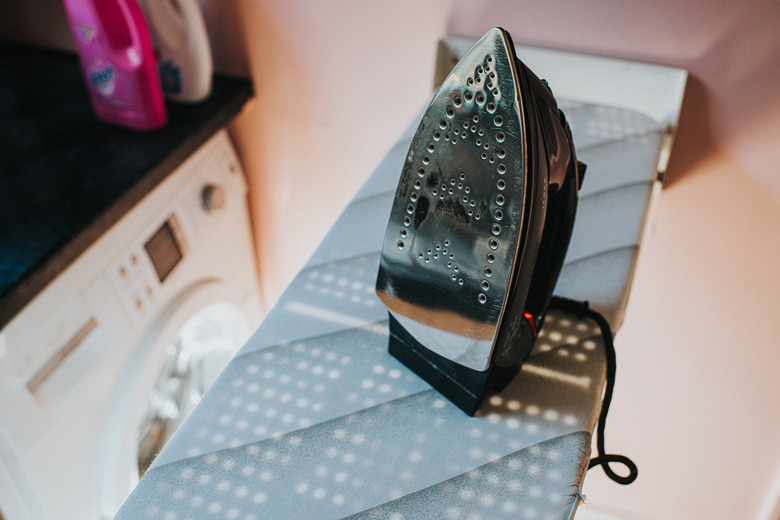The Best Type Of Water To Use In A Steam Iron
We may receive a commission on purchases made from links.
While regular tap water is all that's required to use the steam feature in many steam irons, it's not always the best choice if your area has hard water, which contains minerals that may build up and eventually clog the steam holes in the iron. The best water for your particular steam iron depends upon the manufacturer's recommendations, and whether your home has hard water. Whenever possible, consult the iron's instruction manual and follow the manufacturer's recommendations for that specific model.
Tip
For an area without hard water, tap water works well in the average steam iron. Use a mix of half tap water, half distilled water in areas known for hard water that causes too much mineral buildup. Check the iron owner's manual for specific recommendations.
Read the Manufacturer's Recommendations
Read the Manufacturer's Recommendations
While it may seem like one steam iron works essentially the same as another, that's not always the case. Some companies, such as Rowenta, make steam irons designed to specifically use tap water, even with features that automatically remove mineral deposits that might otherwise clog parts of the iron. This type of iron works best with tap water, or a mix of equal parts tap and distilled water for areas of exceptionally hard water. Using any other type of water, such as pure distilled or deionized water, may actually harm the metal in the iron due to chemical reactions that occur.
The instruction sheet that comes with every new iron usually mentions the best type of water to use in that specific model. If you don't have the sheet, look up the iron model number on the manufacturer's website. If it's still in production, the iron's manual is usually available as a download. For an outdated iron, look for a comparable model online made by the same company, and read the instructions.
Hard vs. Soft Water
Hard vs. Soft Water
Hard water is tap water that contains a lot of minerals such as calcium and magnesium. Though tap water contains other minerals too, the calcium and magnesium are the ones that usually cause a mineral buildup, sometimes called limescale. Water spots on glassware or chalky substances clogging a showerhead are caused by these same minerals.
Soft water has lower concentrations of the minerals that cause limescale, and whether your home naturally has hard or soft water depends upon your local water supply. If you have a water softener in your home, it removes many of the minerals that cause limescale, resulting in a "softer" water that greatly reduces the chance of mineral buildup in water-using appliances. If you aren't sure which type of water your home has, a water-hardness test kit is an easy way to find out, or you could have the water tested by an independent laboratory.
Choosing Water for Your Iron
Choosing Water for Your Iron
If you live in an area with soft water or low mineral concentration in the tap water, water from the tap is perfectly fine in most steam irons. Many manufacturers even recommend it, as deionized or distilled water could harm the metal parts in the iron over time. If you aren't sure which water to use in your particular iron, a mix of equal parts tap water and distilled water is a good choice, as it cuts the potential risks of using either type of water on its own. Don't use greywater, rainwater, or other reclaimed water in your iron either, as the water likely contains substances that may either harm the iron or cause stains as you iron.
